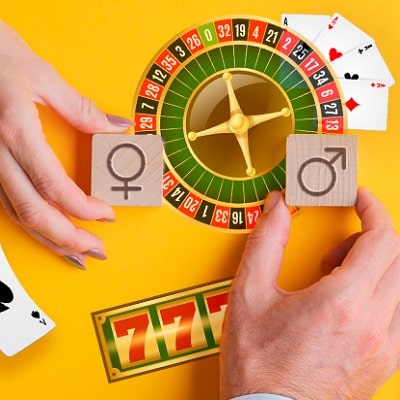
Differences in Players by Gender in Different Countries
While some people view gambling as a harmless pastime, others view it as a serious problem that can have significant negative consequences. Regardless of one’s personal views on gambling, the fact remains that gambling is a massive industry generating billions of dollars in revenue every year.
The purpose of this article is to depict gender differences in gambling behavior and how these differences are reflected in the marketing strategies used by the casino industry.
Gender differences in gambling preferences
Studies have shown that men and women have different gambling preferences. For example, men are more likely to prefer high-stakes games like poker or blackjack, while women prefer low-stakes games. These differences are believed to be due to a number of factors, including social and cultural influences, biological differences, and personal preferences.
How do social and cultural factors influence gaming behavior?
In addition to personal preferences, social and cultural factors also play a role in shaping gambling behavior. For example, women are often socialized to avoid risk and put their family’s well-being first, which can make them less likely to engage in high-stakes gambling. On the other hand, men are often encouraged to take risks and be competitive, which can make them more likely to engage in high-stakes gambling.

Gender marketing in the casino
The casino industry has long recognized gender differences in gambling behavior and has developed marketing strategies that target different demographics. For example, casinos targeted at women may have a more relaxed and social atmosphere, with an emphasis on low stakes games such as slots and bingo. Male-oriented casinos may feature a more competitive atmosphere and high stakes, with an emphasis on games such as poker and blackjack.
Impact on gambling behavior
Gender marketing can have a significant impact on gambling behavior. For example, casinos that target women may attract more women to gambling, while casinos that target men may attract more men. This can have both positive and negative effects as some people may be more susceptible to problem gambling depending on the type of environment they are in.
Problems of gambling
Studies have shown that men are more likely to experience problem gambling than women. However, women who experience problematic gambling may face unique challenges such as stigma and a lack of resources specifically tailored to their needs.
In conclusion, it should be noted that gender differences play an important role in the casino industry. While men are more likely to visit land-based casinos and participate in table games such as poker and blackjack, women prefer slot machines and other types of electronic games. This difference is not just a matter of personal preference, as studies have shown that women are more likely to develop problem gambling behaviors than men. Casino operators need to recognize these differences and provide appropriate support and resources to both men and women who may struggle with gambling addiction.
Moreover, casinos should strive to create a safe and inclusive environment for all visitors, regardless of gender. This can be achieved by creating gender-neutral spaces and promoting responsible gambling. By understanding and addressing gender differences in gambling behavior, the casino industry can ensure that all visitors have a positive and enjoyable gaming experience. As technology continues to evolve, it is likely that gender differences in the casino industry will become even more pronounced. Therefore, it is extremely important for casinos to keep abreast of the latest research and trends, as well as constantly evaluate and improve their policies and practices. Ultimately, the goal should be to create a casino environment that is welcoming and accessible to all, and that encourages responsible gambling.
